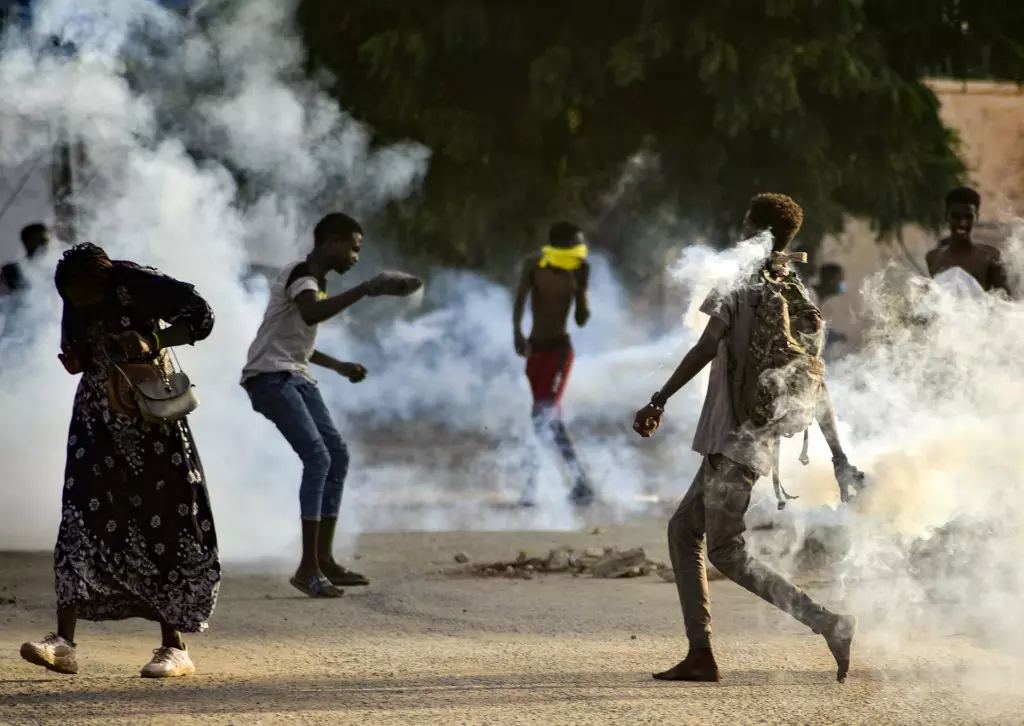
Hakki-Pikkis, traditional healers, may have gone to war-torn Sudan due to demand for cheap herbal treatments
text_fieldsBengaluru: A civil war in Sudan has left 31 members of the Hakki-Pikki group from Karnataka stranded, leaving many to wonder how the impoverished tribal people managed to travel such a great distance and arrive in the African country.
In Sudan, opposing military factions have been fighting for control of the nation.
It turns out there is a great demand for low-cost traditional medicines because the people of Sudan are unable to afford ‘English medicines’, an official said.
“Modern medical treatment is either unavailable to them or is way beyond the reach of the majority of citizens of Sudan. The people were looking for an alternative medicine which is effective and cheap. That is when the Hakki-Pikki tribes found an opportunity and reached there,” the state government official said.
Karnataka State Disaster Management Authority Commissioner Manoj Rajan said, “We have got a message that a group of 31 people hailing from Karnataka are stranded in Sudan. We have informed the Ministry of External Affairs (MEA) about it.” The officer said his department has asked the group to follow the instructions of the Indian Embassy in Sudan.
As of now, stranded people should stay wherever they are and not venture out. The MEA is seized of the matter and is working on it, Rajan said.
According to him, the stranded Hakki-Pikki people comprise both men and women.
“It is still a matter of investigation how they reached there but what we learnt is that they are selling some Ayurvedic medicines to the people,” Rajan said.
The KSDMA Commissioner further said these people carried the herbs and other medicines required for their treatment from India and sold the items there.
Being impoverished themselves, it is still a mystery how the Hakki-Pikkis travelled so far from India to a large continent across the expansive Indian Ocean, another officer said adding that once they return, these matters should be investigated.
The Hakki-Pikkis are known in Karnataka for their traditional medicines. The tribal group that has been living in deep jungles developed its own plant- and herb-based medical systems. There are people in Karnataka’s cities who trust their medicines, the officer explained.
A semi-nomadic community, Hakki-Pikkis are the bird-catching communities who can speak Kannada, Telugu, Tamil, Malayalam and their dialect Vagribooli, which is said to be somewhat similar to Gujarati. It is also believed that their ancestors were from Gujarat and migrated to South India following invasions in the past.
Joshua Project of the Christian missionaries too showed its interest in this tribe.
On its website, Joshua Project wrote, “The Hakki Pikki need the Holy Spirit to empower them to open their eyes and see Jesus.” According to former Karnataka chief minister Siddaramaiah, one Indian has died and 60 others including 31 Hakki-Pikki tribals are stranded in Sudan.
In a series of tweets, the Congress leader urged the Government of India to intervene and bring the stranded people back to the country.
“It is reported that 31 people from Karnataka belonging to the Hakki Pikki tribe, are stranded in Sudan which is troubled by civil war. I urge @PMOIndia @narendramodi, @HMOIndia, @MEAIndia and @BSBommai to immediately intervene & ensure their safe return,” he tweeted.
The Hakki Pikkis in Sudan were left stranded without food for the past few days and the government has not yet initiated action to bring them back, he alleged.
Siddaramaiah sought the BJP government at the Centre to immediately open diplomatic discussions and reach out to international agencies to ensure the well-being of Hakki-Pikkis.
“It is also unfortunate to know that we have lost one Indian & 60 others in the ongoing civil war in Sudan. My deepest condolences to their families and pray for peace in the region,” he said in his message.
At least 185 people have been killed and over 1,800 wounded since the fighting erupted in Sudan.
The sudden outbreak of violence over the weekend between the nation’s two top generals, each backed by tens of thousands of heavily armed fighters, trapped millions of people in their homes or wherever they could find shelter, with supplies running low and several hospitals forced to shut down.
The two sides are using tanks, artillery and other heavy weapons in densely populated areas. Fighter jets swooped overhead and anti-aircraft fire lit up the skies as darkness fell.
With PTI inputs






















